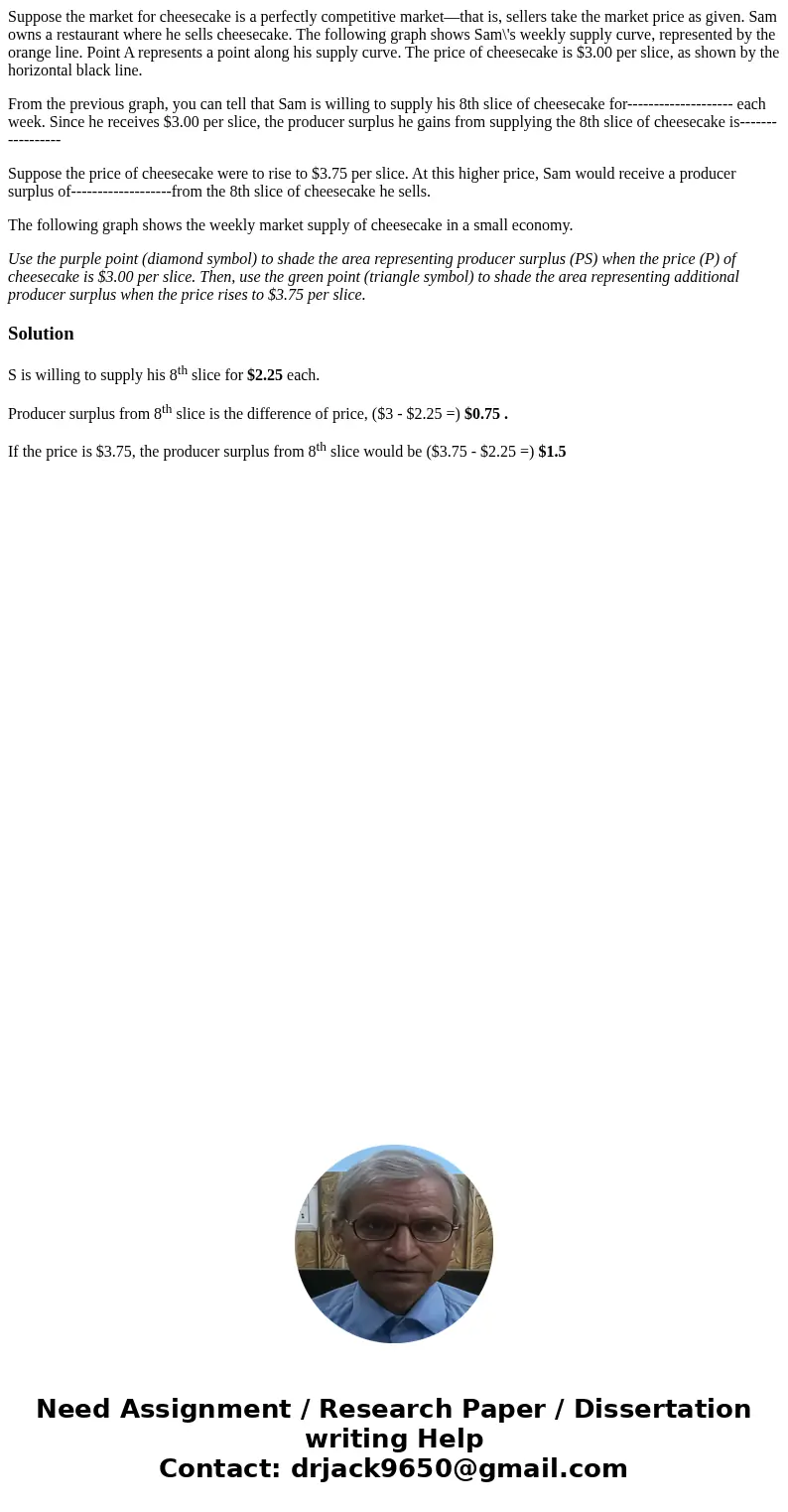Suppose the market for cheesecake is a perfectly competitive
Suppose the market for cheesecake is a perfectly competitive market—that is, sellers take the market price as given. Sam owns a restaurant where he sells cheesecake. The following graph shows Sam\'s weekly supply curve, represented by the orange line. Point A represents a point along his supply curve. The price of cheesecake is $3.00 per slice, as shown by the horizontal black line.
From the previous graph, you can tell that Sam is willing to supply his 8th slice of cheesecake for-------------------- each week. Since he receives $3.00 per slice, the producer surplus he gains from supplying the 8th slice of cheesecake is-----------------
Suppose the price of cheesecake were to rise to $3.75 per slice. At this higher price, Sam would receive a producer surplus of-------------------from the 8th slice of cheesecake he sells.
The following graph shows the weekly market supply of cheesecake in a small economy.
Use the purple point (diamond symbol) to shade the area representing producer surplus (PS) when the price (P) of cheesecake is $3.00 per slice. Then, use the green point (triangle symbol) to shade the area representing additional producer surplus when the price rises to $3.75 per slice.
Solution
S is willing to supply his 8th slice for $2.25 each.
Producer surplus from 8th slice is the difference of price, ($3 - $2.25 =) $0.75 .
If the price is $3.75, the producer surplus from 8th slice would be ($3.75 - $2.25 =) $1.5

 Homework Sourse
Homework Sourse